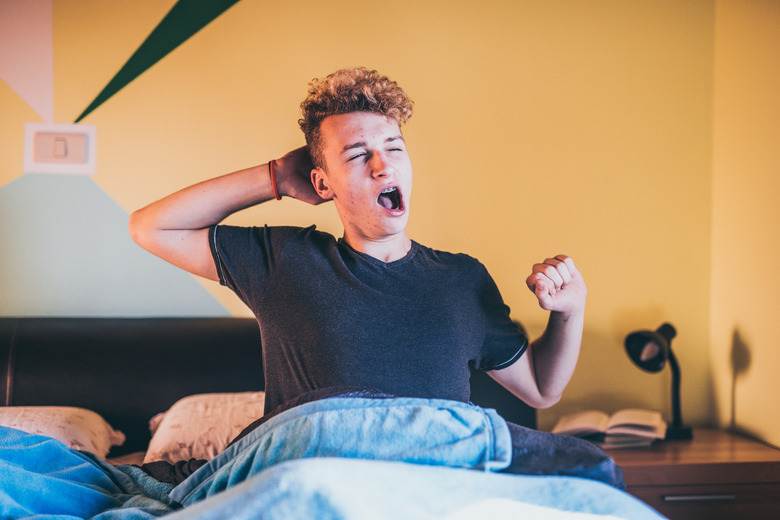Daylight Saving 2019: How To Become A Morning Person Again
It's spring forward this weekend! Yup, daylight saving time officially arrives at 3 a.m. on Sunday, bringing with it later sunsets and earlier mornings.
And while we're all about enjoying more hours of daylight after school, getting up what feels like an hour earlier can be, well, not as fun. But if one of your goals for the year is to become more of a morning person, using daylight saving time to jumpstart your a.m. routine isn't a bad idea.
Becoming more of a morning person might also help you reach your other goals too. One study, performed at the University of Toronto in Canada, found that morning people reported feeling happier than night owls, while another study out of Harvard found that morning people are more proactive.
But even if you aren't looking to become a morning lark, you'll still need to adjust to the time change. And these simple science-backed tips will make transitioning to your new sleep schedule easier – so "spring forward" doesn't feel quite so painful.
Put Your Phone to Bed Early
Put Your Phone to Bed Early
We know – it's hard to put your phone away at night and risk missing something important. But giving yourself a small break from screen time will help you adjust to a new sleep schedule.
That's because your phone emits blue light that naturally stimulates your brain. The light naturally suppresses delta brainwaves – special brain waves that would normally help you fall asleep – and activates alpha brainwaves, which help you feel more alert.
The end result? More tossing and turning, and lower quality sleep. So you'll feel even more tired in the morning.
Ideally, you should set your phone aside for at least an hour before sleeping. But we know that's not always realistic – and even putting your phone down 10 minutes before bed is better than nothing.
Let the Sun In
Let the Sun In
On the, uh, brighter side? You can use the effect that light has on your brain to perk up more quickly in the morning.
Open your curtains ASAP when your alarm goes off. Exposure to sunlight will naturally suppress a hormone called melatonin, which would otherwise keep you feeling drowsy. With melatonin out of the picture, you'll find yourself perking up way easier than if you kept the curtains closed.
And if it's a grey day outside? Turn on all the lights. Very bright artificial light has a similar melatonin-suppressing effect to real sunlight, so it'll help you wake up.
Take Time for Breakfast
Take Time for Breakfast
We know, we know – skipping breakfast is already all too easy, and having to get up even earlier doesn't help. But carving out 10 minutes for a simple breakfast can help you fuel up for the day, so your early-morning fatigue doesn't last until lunch.
Why? Well, breakfast literally provides fuel, and if your breakfast includes carbohydrates, like toast or fruit, you'll get an almost-instant boost of energy. But eating early in the morning also helps rehydrate you – especially if you make it a point to drink water or tea with your meal. That helps fend off dehydration, a common cause of fatigue.
Make a Gradual Transition
Make a Gradual Transition
If waking up an hour earlier feels like way too much, take advantage of the few days left until daylight saving time to ease yourself into it. Setting your alarm an increasing 15 minutes earlier each morning means you'll already be on "daylight saving" waking time by Sunday – so getting up early Monday should be a breeze.
Cite This Article
MLA
Tremblay, Sylvie. "Daylight Saving 2019: How To Become A Morning Person Again" sciencing.com, https://www.sciencing.com/daylight-savings-2019-how-to-become-a-morning-person-again-13717709/. 7 March 2019.
APA
Tremblay, Sylvie. (2019, March 7). Daylight Saving 2019: How To Become A Morning Person Again. sciencing.com. Retrieved from https://www.sciencing.com/daylight-savings-2019-how-to-become-a-morning-person-again-13717709/
Chicago
Tremblay, Sylvie. Daylight Saving 2019: How To Become A Morning Person Again last modified August 30, 2022. https://www.sciencing.com/daylight-savings-2019-how-to-become-a-morning-person-again-13717709/
